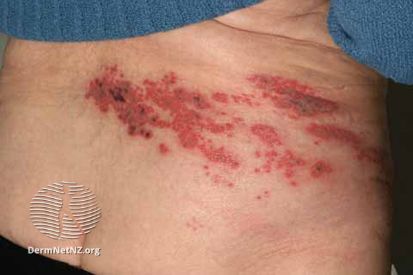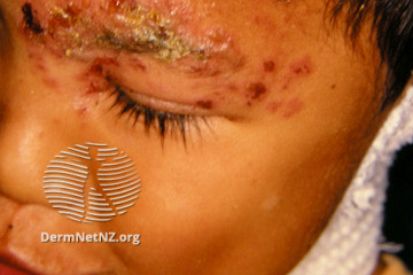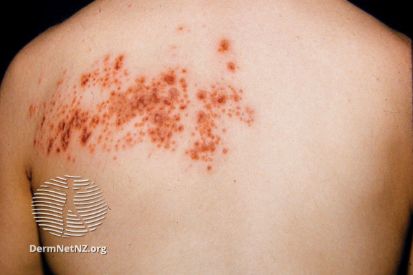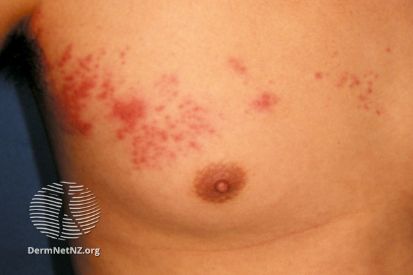Shingles
Shingles is a viral infection characterized by a painful red rash with small blisters, usually confined to one side of the body. The rash often comes with sensations of numbness or tingling. While shingles itself isn't contagious, the virus that causes it—varicella-zoster—can be passed on to those who haven't had chickenpox or the chickenpox vaccine, potentially leading to chickenpox.
At Pinehurst Dermatology & Mohs Surgery Center, our skilled providers are committed to helping you manage shingles effectively. Whether you're experiencing an outbreak or seeking prevention advice, our team provides expert, compassionate care to guide you through the process.
If you think you have shingles or want to learn more about managing and preventing it, schedule an appointment with our specialists at Pinehurst Dermatology & Mohs Surgery Center. Take the first step towards healthier skin with confidence in our expert care.
Examples of Shingles




What are the Symptoms of Shingles?
- Headaches, fever, and/or chills.
- Fatigue.
- A line of fluid-filled blisters.
- Severe itching, burning, pain, or discomfort.
- Numbness and/or a tingling sensation.
What Causes Shingles?
- Shingles are caused by the reactivation of the varicella-zoster virus, the same virus responsible for giving us chickenpox.
- When the immune system weakens with age, stress, or other factors, the virus can resurface, leading to shingles.
- The reactivated virus travels along nerves, causing pain and a distinctive rash.
Shingles Prevention
Shingles FAQs
Anyone who has had chickenpox is at risk for developing shingles, as the virus remains dormant in the body and can reactivate later in life. The risk increases with age, particularly for those over 50, and in individuals with weakened immune systems.
Early symptoms of shingles may include tingling, itching, or pain in a specific area of the body, often followed by the appearance of a red rash and fluid-filled blisters.
If you suspect you have shingles, it's important to see a dermatology provider as soon as possible. Early treatment with antiviral medications can help reduce the severity and duration of the outbreak.
Yes, shingles can be prevented with the shingles vaccine, recommended for adults over 50. The vaccine reduces the risk of developing shingles and its complications.
A shingles outbreak typically lasts 2 to 4 weeks. The pain often begins before the rash appears and can persist even after the rash has healed, a condition known as postherpetic neuralgia.
Treatments for Shingles
- Prescription antiviral drugs.
- Numbing creams or sprays.
- Medications that can help with pain.
Schedule with one of our certified skin experts today!
Featured Products
Check your local office for current stock!
Check your local office for current stock!
